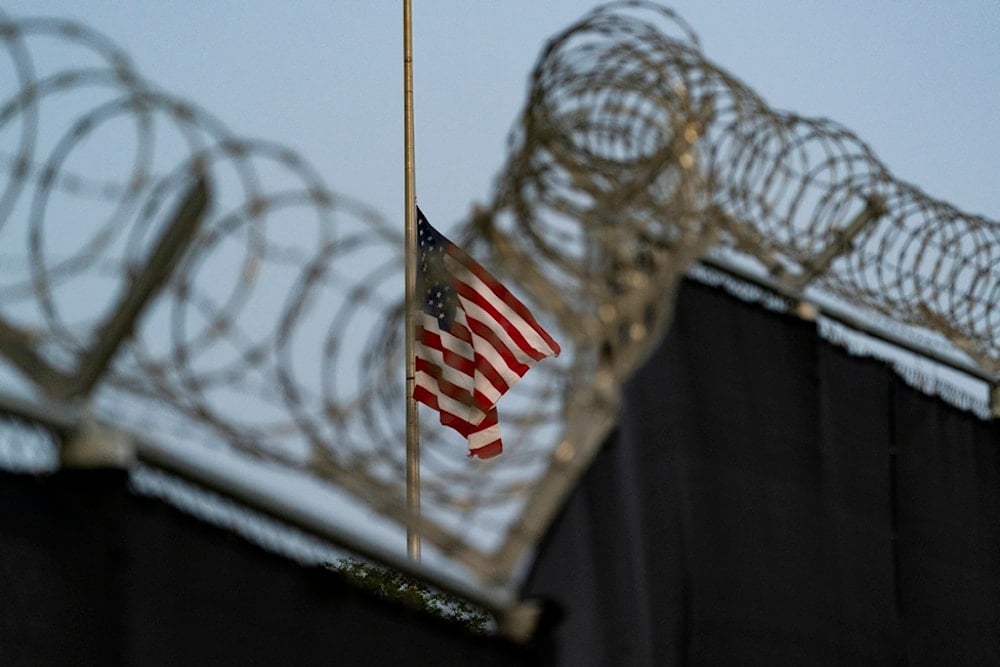White House denies reported plan to send migrants to Guantanamo
Several US outlets reported Tuesday that federal agencies were weighing the possibility of transferring up to 9,000 undocumented immigrants to the site, which is best known for housing terrorism suspects.
-

In this Aug. 29, 2021, photo reviewed by US military officials, a flag flies at half-staff as seen from Camp Justice in Guantanamo Bay Naval Base, Cuba (AP Photo/Alex Brandon, File)
White House Press Secretary Karoline Leavitt dismissed recent media stories suggesting the Trump administration intends to relocate thousands of undocumented migrants to Guantanamo Bay, the US-controlled detention center in Cuba.
"This story is Fake News. Not happening," Leavitt wrote in a post on X, responding to an article published by The Washington Post.
Several US outlets reported Tuesday that federal agencies were weighing the possibility of transferring up to 9,000 undocumented immigrants to the site, which is best known for housing terrorism suspects. According to Politico, this figure includes about 100 Romanians and 170 Russians, with transfers reportedly set to begin as early as this week.
The Washington Post stated that European nationals from countries such as the United Kingdom, France, Germany, Italy, Ireland, Belgium, the Netherlands, Poland, Lithuania, Turkey, and Ukraine could be among those flown to Guantanamo.
Guantanamo expansion
The reports follow a January executive order signed by President Donald Trump directing the Department of Defense and the Department of Homeland Security to expand detention capacity at Guantanamo Bay to hold up to 30,000 individuals labeled "high-priority criminal aliens unlawfully present in the United States." Since February, approximately 500 people have already been transferred to the facility, according to Politico.
Guantanamo, long criticized by human rights groups for its history of indefinite detention and harsh interrogation practices, includes a separate compound used for holding migrants, including children. The plan has drawn renewed scrutiny amid growing domestic unrest, especially after a series of large-scale ICE raids in Los Angeles last week triggered mass protests, clashes with police, and the imposition of curfews.
Read more: Trump backs arrest of California Governor amid LA protest clashes
Militarized detention
The LA operations—reportedly resulting in dozens of arrests—have heightened national tensions around immigration enforcement. The deployment of federal troops to the city has further fueled criticism from civil rights advocates, who argue the Guantanamo transfer proposal reflects an increasingly militarized and punitive approach to immigration policy. Critics have also raised concerns about the legality and cost of such transfers, as well as the diplomatic fallout of detaining European nationals at a facility often associated with rights abuses.
Despite Leavitt’s denial, legal experts and advocacy organizations are calling for greater transparency, warning that even exploratory discussions of such a policy could signal a dramatic escalation in the administration’s immigration strategy.

 3 Min Read
3 Min Read










